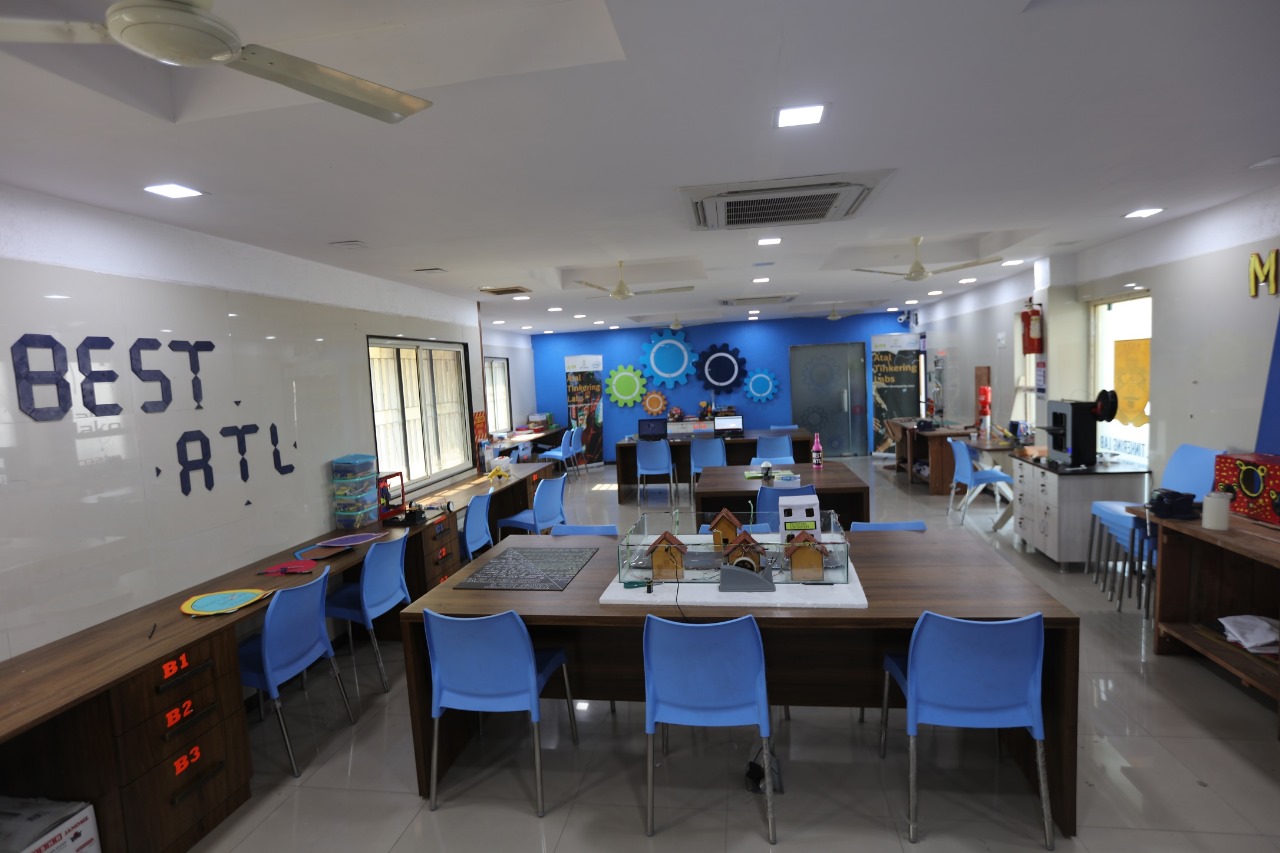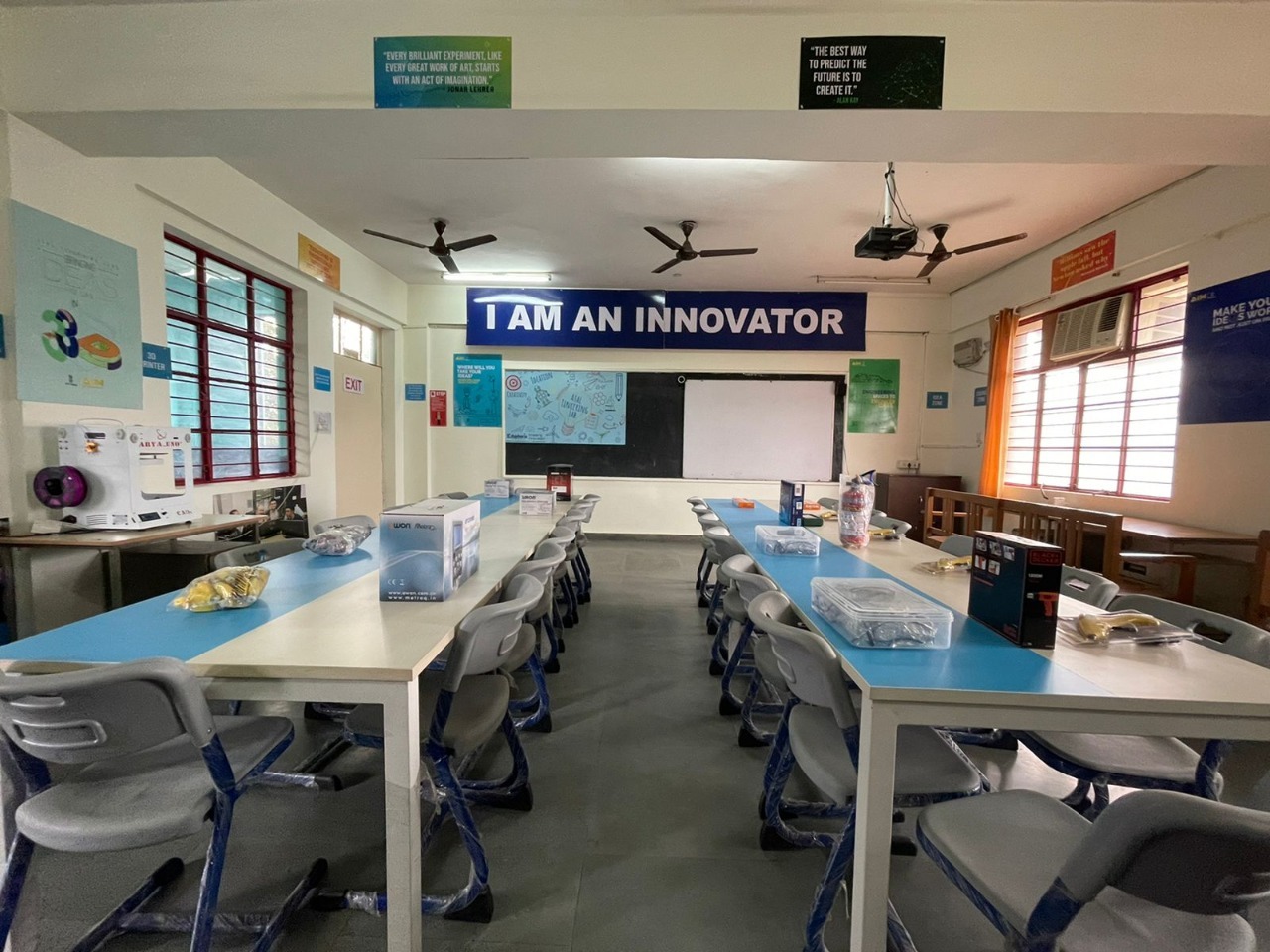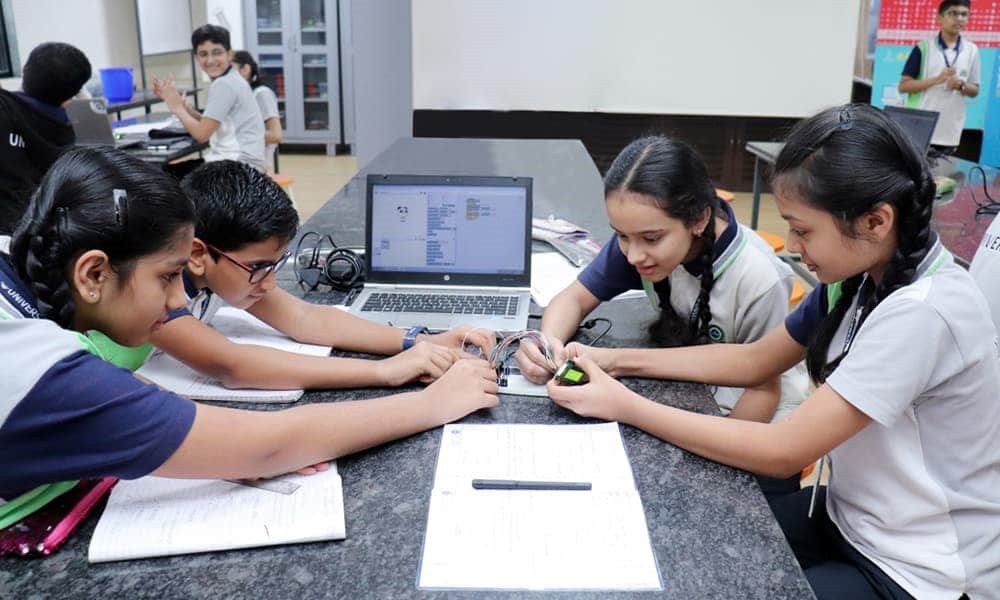ATL Establishment & Operations

ATLs often organize innovation challenges, hackathons, and competitions to encourage students to solve real-world problems through innovative solutions.ATLs focus on developing skills such as critical thinking, problem-solving, creativity, and collaboration.
Students gain practical experience in areas like robotics, electronics, programming, and design thinking.
About Atal Tinkering Labs

With a vision to Cultivate one Million children in India as Neoteric Innovators, Atal Innovation Mission is establishing Atal Tinkering Laboratories (ATLs) in schools across India. The objective of this scheme is to foster curiosity, creativity, and imagination in young minds; and inculcate skills such as design mindset, computational thinking, adaptive learning, physical computing etc.
Future Of Atal Tinkering Labs

In the ever-evolving landscape of education, the integration of technology, innovation, and hands-on learning has become imperative. Atal Tinkering Labs (ATLs), have emerged as beacons of change in the education system, empowering schools and students to embrace the future of learning. In this blog, we will explore the significance and potential trajectory of ATL Lab, examining how they bridge the gap between theory and application, nurture a culture of innovation, and prepare students for the demands of the future job market.
Benefits of Atal Tinkering Lab
Encouraging Innovation:
ATLs provide a dedicated space for students to unleash their creativity and work on innovative projects.
Students are encouraged to think critically, identify problems, and develop solutions.
Hands-On Learning:
ATLs offer a hands-on learning experience, allowing students to experiment with various tools, equipment, and technologies.
Practical exposure enhances understanding and retention of STEM (Science, Technology, Engineering, and Mathematics) concepts.
STEM Skill Development:
The labs focus on developing skills in science, technology, engineering, and mathematics.
Students gain practical experience in areas such as robotics, electronics, coding, and 3D printing.
Problem-Solving Skills:
ATLs promote problem-solving skills by encouraging students to tackle real-world challenges.
Students learn to analyze problems, ideate solutions, and implement them in a systematic manner.


